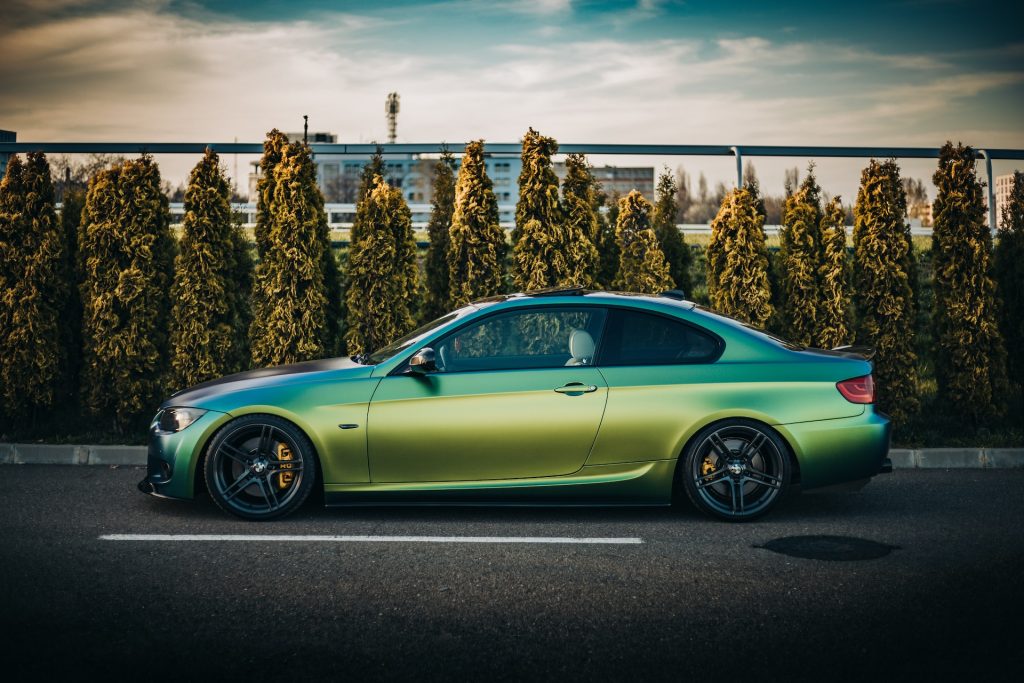Car wrapping has become a transformative art, allowing car enthusiasts to express their individuality and protect their vehicles simultaneously.
One of the key decisions car owners face when contemplating a wrap is whether to embark on a do-it-yourself (DIY) project or enlist the services of a professional.
In this article, we will delve into the world of car wrapping, exploring the pros and cons of both DIY and professional approaches.
The DIY Approach
Pros:
- Cost-Effectiveness
One of the primary motivations for choosing a DIY car wrap is the potential cost savings.
Purchasing vinyl wrap materials and tools is often more affordable than hiring a professional.
This can be especially appealing for budget-conscious car owners looking to refresh their vehicle’s appearance without breaking the bank.
- Flexibility and Creativity
DIY enthusiasts appreciate the freedom and creativity that come with tackling a car wrapping project independently.
You have complete control over the design, color, and finish, enabling you to bring your vision to life without compromise.
- Sense of Accomplishment
Embarking on a DIY car wrapping project provides a unique sense of accomplishment.
Successfully transforming the look of your vehicle with your own hands can be incredibly satisfying, and it allows for a deep connection with the finished product.
Cons:
- Skill and Expertise
Car wrapping requires a specific skill set, and achieving a flawless result demands precision and attention to detail.
Novice DIYers may find themselves facing a steep learning curve, potentially leading to mistakes such as air bubbles, creases, or uneven application.
- Time-Consuming
Car wrapping is a meticulous process that demands time and patience.
DIY projects often take longer than professional installations, especially for beginners who may need extra time to familiarize themselves with the techniques involved.
- Durability Concerns
Professionals possess the experience to ensure a durable and long-lasting wrap.
DIY installations may lack the same level of precision and expertise, potentially leading to issues like premature wear, peeling, or discoloration over time.
The Professional Approach
Pros:
- Expertise and Precision
Professional car wrappers undergo extensive training and have the expertise to deliver impeccable results.
Their experience allows them to navigate challenges efficiently, ensuring a smooth and flawless finish that may be challenging for DIY enthusiasts to achieve.
Car wrapping involves applying a vinyl film to the exterior of a vehicle, providing a unique and customizable look.
If you’re considering car wrapping in Houston, Texas, one notable option to explore is Car Wrap Houston TX.
They specialize in transforming vehicles into personalized works of art, catering to the preferences of car owners in the Houston area.
- Time Efficiency
Professional car wrapping is known for its efficiency.
Trained installers can complete a wrap in a fraction of the time it might take a DIY enthusiast.
This time efficiency is particularly advantageous for those who want their vehicles transformed without prolonged downtime.
- Quality Materials and Techniques
Professionals often have access to high-quality materials and advanced techniques.
This not only contributes to the aesthetic appeal of the wrap but also ensures durability.
Using top-notch materials enhances the longevity of the wrap, offering better protection for your vehicle’s exterior.
- Warranty and Quality Assurance
Reputable car wrapping professionals often provide warranties on their work, offering peace of mind to car owners.
The warranty ensures that any issues with the wrap, such as peeling or fading, will be addressed, providing long-term value and quality assurance.
Cons:
1. Higher Cost
The expertise and efficiency of professional car wrapping come at a price.
Hiring professionals is generally more expensive than opting for a DIY approach, making it less accessible for budget-conscious individuals.
2. Limited Personalization
While professionals can provide an array of design options, there may be limitations compared to the boundless creativity possible in a DIY project.
Car owners who have very specific, personalized visions for their wraps may find that professionals have certain constraints.
3. Dependence on Service Availability
Booking a professional car wrapping service may depend on their availability and scheduling.
Car owners may need to plan ahead and schedule appointments, potentially facing delays due to high demand or seasonal variations in workload.
Conclusion:
In the exciting world of car wrapping, whether to do it yourself or hire professionals depends on what you’re comfortable with, how much time you have, and how much you’re willing to spend.
Doing it yourself is cool for those who love getting hands-on, while hiring professionals is great if you want a quick, guaranteed, and expert job.
No matter which path you choose, car wrapping is a fantastic way to make your car uniquely yours, turning it into a piece of art that reflects your style and personality.
FAQ
- What is car wrapping, and how does it differ from traditional paint?
Car wrapping involves applying a vinyl film to the exterior of a vehicle, providing a customizable and protective layer.
Unlike traditional paint, wraps are temporary and can be easily removed without damaging the original paint.
- Why would someone choose to wrap their car instead of repainting it?
Car wrapping offers a cost-effective way to change a vehicle’s appearance without the permanence of a paint job.
It also provides protection against scratches, stone chips, and UV rays, preserving the original paint underneath.
3. Can I wrap my car myself, or should I hire a professional?
Both options are possible. DIY wrapping is cost-effective but requires skill and patience.
Professionals bring expertise, precision, and a quicker turnaround.
The choice depends on your skill level, time availability, and desired outcome.
4. Does car wrapping damage the original paint?
No, if the wrap is applied and removed correctly by professionals.
In fact, wraps can protect the original paint from minor scratches and fading caused by UV rays.
5. Can DIY car wrapping achieve the same quality as professional services?
Achieving the same level of quality as professionals may be challenging for beginners.
Professionals have the expertise to ensure a flawless finish and address potential issues.
6. Are there any specific tools or materials required for a DIY car wrap?
Yes, DIY car wrapping requires specific tools such as squeegees, heat guns, and precision cutting tools.
Additionally, you need high-quality vinyl wrap materials.
7. Can a DIY car wrap be as durable as a professionally installed wrap?
Professional installations tend to be more durable due to the expertise and techniques used.
DIY wraps may be more prone to issues like air bubbles, creases, or premature wear if not applied correctly.
8. Are there any risks associated with DIY car wrapping?
Yes, the main risks include improper installation leading to aesthetic issues, potential damage to the original paint during the process, and a shorter lifespan if not done with precision.

